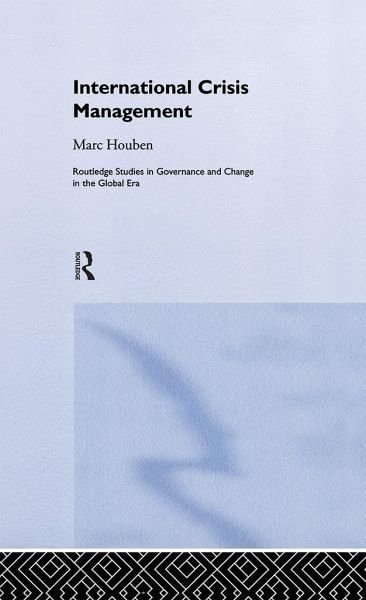
International Crisis Management
The Approach of European States
Versandkostenfrei!
Versandfertig in 1-2 Wochen
178,99 €
inkl. MwSt.
Weitere Ausgaben:

PAYBACK Punkte
89 °P sammeln!
Over the past fifty years, crisis management has become essential to achieving and maintaining national security. This book offers a comparative analysis of the preconditions and constraints nine European states place on their participation in international crisis management operations and the important consequences of such decisions, and provides a theoretical framework to help the reader understand this complex decision-making process.














